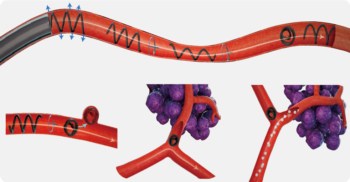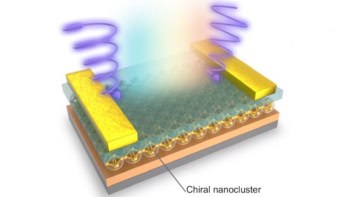Methylmalonic acidemia (MMA) is a rare genomic condition that disrupts the normal metabolism of certain proteins and fats, resulting in a toxic accumulation of methylmalonic acid in the body. This build-up may lead to irreparable kidney impairment, metabolic liver dysfunction, pancreatitis, intellectual disability and eventually, without treatment, death. Researchers at the National Institutes of Health have now developed a breath test for MMA, based on safe (non-radioactive) stable isotope tracers, publishing their findings in Genetics in Medicine. The test could help physicians determine the severity of the disorder and the prospects for disease improvement following therapies.
One specific form of MMA is caused by mutations in the gene coding the methylmalonyl-CoA mutase (MMUT) enzyme in the liver, which is essential for metabolism of amino acids, fatty acids and cholesterol. As a result of the mutations, patients with MMA fail to effectively oxidize propionate (a metabolic by-product created by the breakdown of food) to carbon dioxide (CO2) during energy production. In milder cases, the mutation can result in a partial deficiency in enzyme activity; in more severe cases, it leads to a complete absence of activity that’s associated with high mortality.
Metabolism complexity complicates evaluation
Currently, MMA remains incurable, so affected individuals control their symptoms with dietary restrictions, consisting of a special protein-managed diet and vitamin supplements. In severe cases, however, patients require liver or combined liver and kidney transplants to provide metabolic stability. Alternative therapeutic approaches, including gene therapy or genome editing, aim to restore enzyme activity.
“Vast fluctuations in metabolic substances in the bodies of patients make it difficult for us to tell if treatments like genome editing and transplants are likely to be successful,” explains senior author Charles Venditti from the National Human Genome Research Institute (NHGRI). “Instead of looking at levels, we decided to measure metabolism itself.”
To achieve this, the multidisciplinary team – from the National Institute of Diabetes and Digestive and Kidney Diseases, the National Institute of Mental Health and the NHGRI – investigated the rate of oxidation of propionate to CO2 in MMA patients to compare the MMUT functionality between individuals with and without treatment.

Non-invasive breath testing assesses MMA
“We wanted to measure exhaled carbon dioxide because we planned to use a breath test to track oxidation of propionate in a non-invasive way,” says co-author Irini Manoli from the NHGRI. “The trick was to somehow ‘mark’ the carbon dioxide so we could see which patients are unable to oxidize propionate because of a faulty MMUT protein.”
The researchers collected and analysed breath samples from 57 patients with MMA, including 19 transplant recipients, plus a control group of 16 healthy volunteers. All participants received a dose of carbon-13-labelled propionate (1-13C-propionate) dissolved in water, by drinking or via a feeding tube. Because the more common 12CO2 is released via several human metabolic processes, this use of 13C enables distinct detection of the administered propionate dose and its oxidation. Between two minutes and two hours after administration, the researchers captured samples of exhaled breath and determined the 13CO2 levels in relation to 12CO2.

The results showed that patients with severe MMA exhibited lower propionate oxidation than the control group, while oxidation was near-normal in patients with milder MMA subtypes. The researchers further found that the 1-13C-propionate oxidation was restored to control levels in liver transplant recipients. The breath test results also correlated with clinical and laboratory markers for disease severity.
Following this promising outcome, the researchers aim to conduct further studies using the 1-13C-propionate breath test to evaluate enzyme activity response to liver-targeted therapies.



